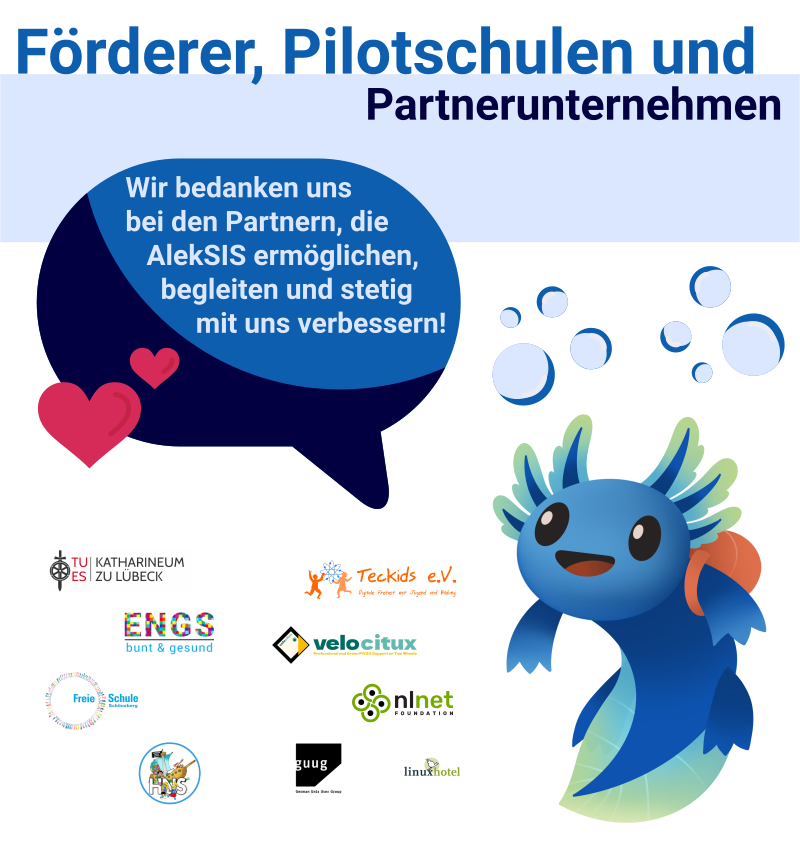The AlekSIS project stand at didacta has attracted many interested parties
from various areas of school digitalization this year. Our team was asked
several times about the stand’s outstanding position, even before talking
about the software itself: Compared to competitors, our visitors commented
positively that our stand evidently presented solutions and that it was clear
to see what AlekSIS stands for. The developers and support staff, who covered
a wide range of knowledge about AlekSIS at the stand, were then able to quickly
enter into open and fruitful conversation. The visitors learned to appreciate
that, as an open source project, we are genuinely interested in exchange and feedback.
Among the approximately 200 conversations that we had at the stand during didacta,
we have been able to make out three particular groups of interested parties:
- School authorities and municipal/regional IT service providers see AlekSIS
as an important alternative to cloud optopms from commercial manufacturers due
to the flexible provision options, especially **self-hosting for affiliated schools(())
- Training centers and vocational schools have a specific need for organizational
software with planning options that are flexible and go beyond traditional weekly
schedules
- Smaller and independent schools still lack economical options for timetable
planning and digital class registers because well-established, commercially
available products are too complex or too expensive
During the live demo of the new user interfaces
in AlekSIS, the team also recorded more than 20 concrete suggestions for
improvement as well as some feature requests, some of which have been evaluated,
scheduled or even implemented during the trade fair.
For the future viability and distribution of AlekSIS in general-education schools
in Germany, didacta offered the necessary networking opportunities. For instance,
the project management team was able to gain insights into the new
central school management software of the state of North Rhine-Westphalia and, together with its
project management, develop concrete ideas for integration with AlekSIS as well as
to promote exchange with Puavo and UCS@School as potential partners, who also
provide solutions for schools based on free software.


